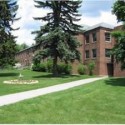Booze overtaking drugs as teen addiction problem
Alcohol is increasingly becoming the drug of choice for young people, with a 10 per cent rise of the number of under-18s seeking addiction advice over the past year, new figures show.
Angela Slaven, director of youth services at Kent County Council, said while the number of people seeking help for under-age drinking were up, those experiencing problems with cannabis was down 26 per cent.
Young people getting help for addiction to ‘other substances’ such as ecstasy, heroin and cocaine fell by 47 per cent.
The figures came from the Kent Drug and Alcohol Action Team (KDAAT), of which Ms Slaven is also director, and are for the period 2007-08 and 2008-09.
“There are a whole range of issues around alcohol,” she said. “It is easy to access and cheap – you can go into a supermarket and buy vodka for £7.
“I think the principal driver is cheapness and there is evidence to suggest that it is to do with cultural and social norms.
“Parents supply 17-year-olds and give their children alcohol perhaps in the belief it is a way of managing it but it could be exacerbating it.”
KDAAT’s figures take into account a range of support mechanisms from a young person talking to a teacher or youth worker about concerns over drug and alcohol addiction through to treatment such as professional counselling and at the top tier detox programmes.
As part of a BBC investigation this week, it was revealed that the number of young people seeking treatment for drug and alcohol problems had increased 12 per cent over two years.
Figures obtained by the broadcaster from the National Treatment Agency showed that 44 per cent more under-25s had problems with drugs like cannabis and cocaine but heroin and crack addiction had gone down.
“Kent is different to the national picture and for whatever reason the drug of choice among young people is alcohol,” Ms Slaven said.
“It could be that young people do not consider alcohol to be a drug because part of our normal society.”
Ms Slaven was speaking to Kent on Sunday to mark National Tackling Drugs Week, which ran from this Monday to Friday, she said while KDAAT was investing in alcohol addiction prevention schemes it had not taken its eyes off issues around drugs.
“There is a gap in 18 to 25s treatment and we are doing work to improve accessibility so that people can seek help with drugs,” she said.
“If people are beginning at 18 to increase their cannabis smoking that is problematic in itself, and if people move towards other class A drugs such as crack cocaine and heroin.
“We are looking at how we shape these services because it is a time when you think you are in control but actually these things creep up on you.”
In Kent, 5, 505 people under-18 accessed KDAAT services in 2007-08, which decreased to 5,007 for the last financial year.
Those referred for alcohol addiction increased from 169 to 192 while cannabis referrals went down from 374 to 276. But cannabis remains the drug that the most young people are seeking help for. Young people seeking help for other substance abuse such as ecstasy and class As like heroin decreased sharply from 71 to 37.
Cannabis was the prevailing drug in young men aged between 16 and 24, Ms Slaven said. She said heroin was most abused by the 35 to 44 age group.
Asked if this showed young people were turning away from it, she said: “Huge amounts of work have been done with harm reduction and prevention issues around blood born viruses and sharing needles these messages are getting across.”
In Kent she said crack addiction was most prevalent in the Medway Towns, she added: “It has not yet spread down into the more rural parts of Kent. Cocaine is associated with more affluence and it could be that they are not presenting to our services.”
source: Canterbury News


